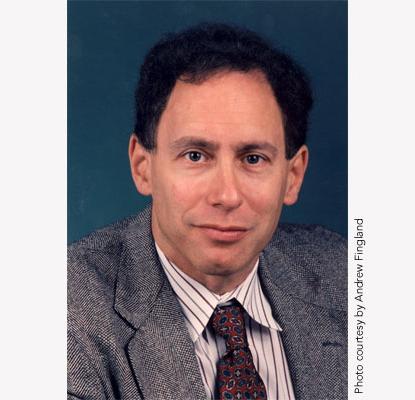Robert Langer
Robert Langer was awarded the 1998 Lemelson-MIT Prize for being one of history's most prolific inventors in medicine. His breakthroughs in controlled drug delivery have prolonged lives and eased the suffering of millions.
A trailblazer in biomaterials, Langer has evolved as the father of tissue engineering, with innovations that have been used in such areas as drug delivery systems, vaccines, tissue repair, diagnostics, innovative waste disposal technologies and novel therapeutics. In 1988, he co-founded Neomorphics, a company that manufactured biocompatible materials for tissue production and has since been absorbed into larger companies.
Langer's research into polymers led to the slow release of micro-encapsulated doses of ionic drugs, peptides and other large molecule drugs. He is also credited with the development of many medicinal biodegradable polymers, particularly Gliadel®, a polymer-based treatment that dissolves over time to deliver chemotherapy to tumor sites in brain cancer patients.
In 1999, Langer created the pharmacy on a chip, an implantable silicon chip that can determine and control the release of measured doses of medicine and potentially replace medicinal injections and ingesting pills in the future. From 1999-2002, he served as the Chairman of the U.S. Food and Drug Administration’s Science Board and in 2002, Langer and his team unveiled Biorubber—a polymer with amazing elasticity for constructing artificial organs.
In 2006, Langer co-foundered T2 Biosystems, a company that plans to revolutionize diagnostic medicine by providing immediate and accurate testing for nearly any health condition, in nearly any setting.
Currently the David H. Koch Institute Professor at MIT, Langer has served as an inspiration and mentor to many MIT graduate students and post-docs. He received his BS in Chemical Engineering from Cornell University (1970) and his ScD in Chemical Engineering from MIT (1974), in addition to over 30 honorary doctorates.
Langer is a member of the National Academy of Sciences, the National Academy of Engineering, the National Academy of Medicine, and the National Academy of Inventors. He has garnered over 220 awards and honors, including the Gairdner Foundation International Award (1996), the $500,000 Charles Stark Draper Prize (2002), the United States National Medal of Science (2006), the United States National Medal of Technology and Innovation (2011). He was also recognized by Forbes Magazine as one of the 25 most important individuals in biotechnology in the world (1999), and Time Magazine has revered him as one of the 100 most important people in America (2001).
To date, Langer has amassed over 1,300 granted or pending patents in the fields of biomedical and chemical engineering, biomaterials and controlled drug delivery and has written over 1,500 articles. But perhaps his most notable role in the global scientific community is his co-founding of the American pharmaceutical company, Moderna, one of the leading biotechnology companies that produced a vaccine for COVID-19 in December 2020.


